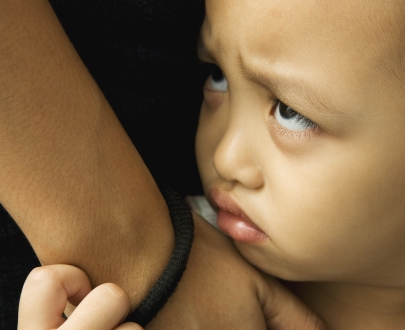
Dealing with something you can’t have is hard!
Frustration is a pre-cursor to anger which is a completely natural reaction to some of the experiences we encounter in everyday life. Often, young children are easily upset when their needs or wishes are not met immediately. Almost daily, children encounter many objects, toys, and activities that are attractive to them.
Many times children do not know how to handle their frustration when told “no” or “later” by a caregiver. Also, there are times when young children do not understand that one child may or may not be allowed to do something because of their family’s religious beliefs or cultural background. In order to have positive experiences at home, in school, and in the community, children need to learn skills to appropriately handle their feelings associated with wanting something that they cannot have. These skills will increase children’s self-control and tolerance of others.
At a time when school and community violence appears to be on the rise, teaching children to effectively manage their anger and choose positive actions to resolve problems is an important task for teachers and parents. Using a puppet, follow the steps below to help children practice skills they will need to manage strong emotions.
1. Say, "I would like to (have) ______________ but I can't right now."
2. How does that make you feel?
-
THINK about what happened.
-
THINK of how your body feels.
-
RECOGNIZE the feeling.
-
SAY, “I feel ______.”
(It will be necessary to review several basic feeling words with young children to help them identify some ways our body tells us how we are feeling. Help the children notice that some bodycues signal different feelings.)
3. Think about your choices.
- ask again later
- find something else to do
- ask to borrow it (if feasible)
- ask to share it
- ask to do chores to earn money to buy one
- wait your turn
- accept that you are not allowed and say "I woud like it, but that's ok."
- if you feel frustration or anger, COUNT to 10, walk away for now or take some deep breaths
- tell the person in nice words using an inside/calm voice how you are feeling
4. ACT out your best choice.